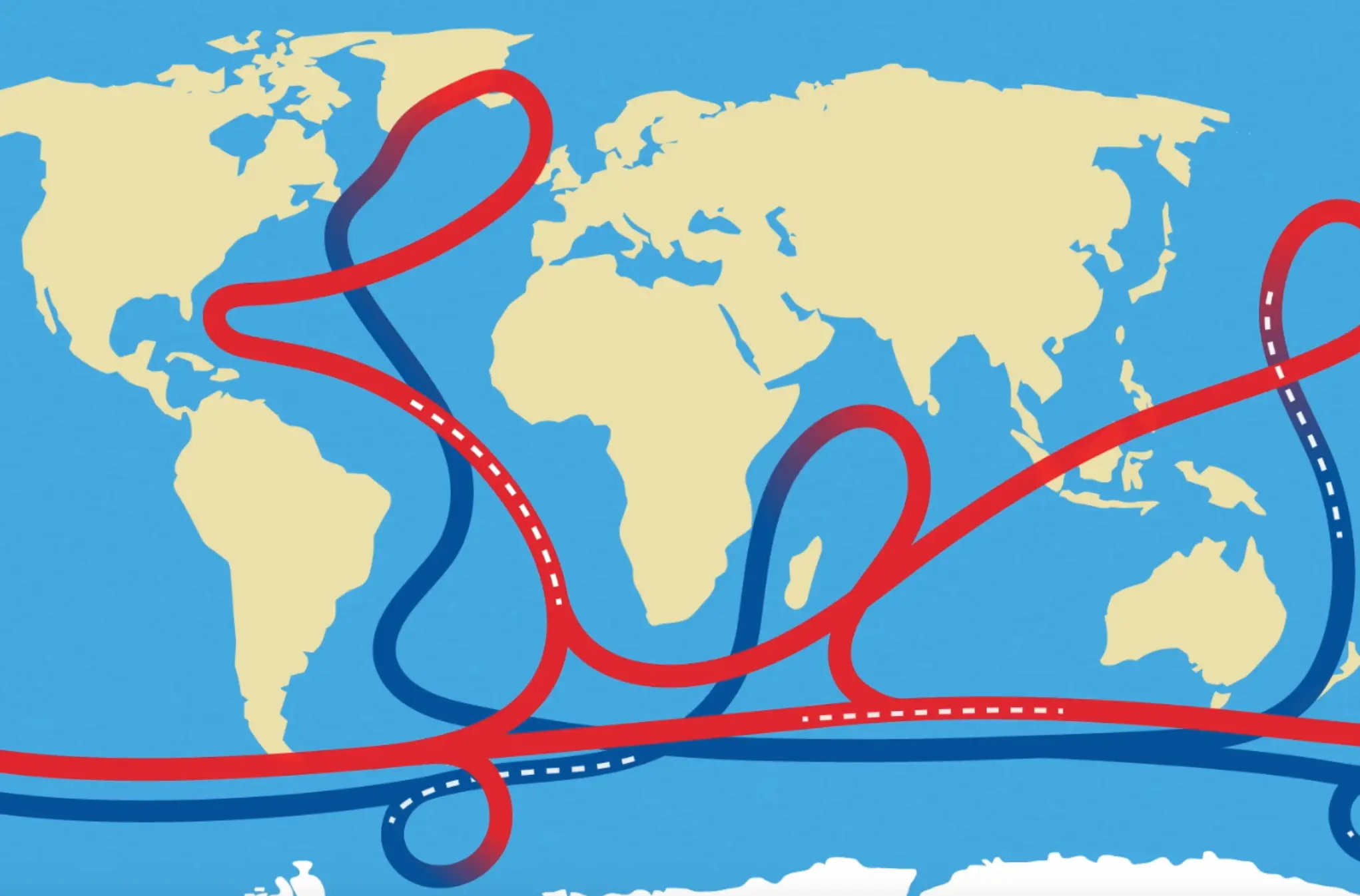
A new study has claimed that a huge weather system collapse could soon be upon us if we're not careful.
The water in our oceans is constantly being circulated by currents, of which there are two main types - surface currents are influenced by the wind, while deep-water currents are caused by factors such as temperature and salinity.
Cold, saltier water is dense and sinks, while warm, less salty water is less dense and floats.
This creates a water movement comparable to a 'conveyor belt' in our oceans, which affects the tides and therefore the weather systems around the world.
Advert
In scientific terms, it's known as thermohaline circulation - or the Atlantic Meridional Overturning Circulation (AMOC) - and one of these 'conveyor belts' is crucial to the climate and conditions which we experience here in the UK.

What is the Atlantic Meridional Overturning Circulation?
It is responsible for circulating water from north to south in the cycle that's part of the Atlantic Ocean, which can warm parts of the world up.
The AMOC is also important in sustaining ocean life, and it relies on cold, salty water sinking in the northern Atlantic to work properly for the environment.
But according to a new study, we could be at a 'significantly higher risk' than we realised of overturning the circulation and shutting down the AMOC altogether.
And the culprit for all this? Climate change, of course.
What would happen if the AMOC collapsed?
Without the current, our summers would be drier, and our winters would be far colder and stormier, so maintaining the AMOC's current state is crucial.
It's said to be at its weakest point in 1,600 years as a result of global warming, meaning it is struggling to bring warm water to Europe and the Arctic and vice versa.
Climate models primarily ran by researchers in the Royal Netherlands Meteorological Institute (KNMI) found that climate models beyond 2100 revealed that a collapse wouldn't happen this century, though it would 'decline significantly'.

It's said that this process would take 50 to 100 years to take place, so if carbon emissions continue to increase, 70 percent of models ran led to collapse.
In fact, a moderate level of emission resulted in the collapse of 37 percent of models, while low emissions showed a collapse in a quarter of models.
This is something that has to be avoided 'at all costs', as the tropical rainfall belt, which many rely on for food and agriculture, would be shifted, and western Europe would suffer from a 50cm-rise in the sea levels and drastic changes in weather.
With models revealing that a collapse is likely, a 'tipping point' which would stop the AMOC could be reached before 2100 itself.
'We may have been underestimating the risk that the AMOC collapses at some point in the future'
Speaking to Metro, Dr Jon Robson of the University of Reading said that there may be a drought and food shortages as a result.
"The paper reveals that we may have been underestimating the risk that the AMOC collapses at some point in the future," he explained.
The scientist warned: "We still don’t know the overall likelihood - the models may be too sensitive, and they are using extremely high CO2 emissions. We urgently need to work out whether it is plausible, but the overall result is definitely concerning."

At the moment, cold, salty water sinks in the northern Atlantic, though the warming climate means that melted fresh water from the ice caps will make the water less salty, weakening circulation as less warm water comes from the southern ocean.
The study found that this 'deep convection' could stop as soon as 'the next decade or two', which could signal the point of no return.
The risk of shutdown is 'more serious' than many realise
Lead scientist Sybren Drijfhout from the Royal Netherlands Meteorological Institute explained that if it 'slows drastically by 2100', we can expect the AMOC to shut off 'in all high-emission scenarios'.
"That shows the shutdown risk is more serious than many people realise," he stated.
Dr Robson reiterated: "Ultimately, the the only real way to be safe about tipping points is to reduce emissions as soon as possible."
Topics: Weather, Global Warming, Environment, Science